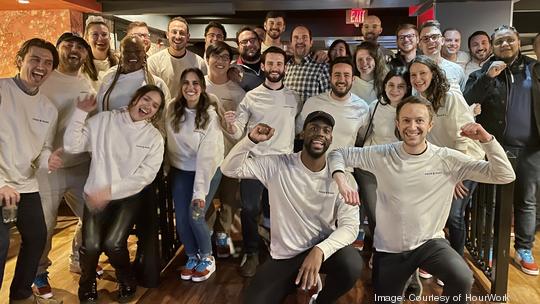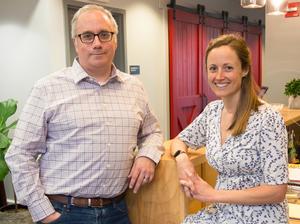
Funding for Black and Latinx-run startups in Massachusetts stayed relatively consistent in the first half of 2022, despite the overall drop in VC dollars nationally. However, these companies are still only getting a minuscule share of the venture capital flowing through the state.
Investment in entrepreneurs of color has lagged in Massachusetts, especially compared to other states. The percentage of capital going to Black and Latinx-owned startups has ticked up slightly this year despite a turbulent economic outlook.
In the first half of this year, companies founded or led by Black executives took home at least $111.5 million — or around .9% of the $12.1 billion in VC funding raised by Massachusetts companies, per Crunchbase data.
In all of 2021, Black-led and -founded companies raised around $138.4 million, according to Crunchbase data from January. The latest PitchBook report put the Bay State’s total funding amount for 2021 at $35.9 billion, meaning Black-led companies got only .4% of the venture capital. Nationally, the average was around 1.3%.
Latinx-founded or -led companies in Massachusetts got $352 million, or 1%, of VC funding last year. This year, they’ve already raised at least $196.45 million. That’s 1.6% of VC funding in the state.
Around half of these fundraises for Black and Latinx companies have come during the last three months, during a time where the U.S. and Massachusetts saw a drop in VC funding. Crunchbase reported that Black-founded U.S. companies saw their funding go from $1.2 billion in the first three months of 2022 to $324 million from April through most of June.
But in Massachusetts, VC funding to Black- and Latinx-led companies has stayed consistent since last year. These companies are raising large rounds, including $20 million raised by CareAcademy and $60 million for Boston-based Nasuni.
HourWork, a Boston startup co-founded and led by Black entrepreneur Rahkeem Morris, raised $12.5 million in a Series A round this year. Morris said he did not perceive the process being more difficult than usual, but admitted they closed the Series A and added some additional funding before concerns about the market became very serious.
Morris said some of the funding to Black-led startups this year has come from funds dedicated to supporting these entrepreneurs. CareAcademy’s round was led by Goldman Sachs' One Million Black Women Initiative, and HourWork, Seaspire Inc. and Paerpay all received investments from MassMutual through its MM Catalyst Fund, a $50 million fund with at least half of the money dedicated to Black-owned and -managed businesses in the Bay State.
“As a result, I think that Massachusetts-based Black founders may not be hit as much,” Morris said.
Despite the strong showing in the first half of 2022, Senofer Mendoza, a co-founder and general partner at Mendoza Ventures, said the worsening market could still lead to less funding for underrepresented founders in the long term. Mendoza Ventures invests in early- and growth-stage fintech, AI and cybersecurity companies, especially those led by immigrants, people of color and women.
Right now, Mendoza said, there is still a lot of money on the table from funds raised by venture firms last year. She said it usually takes about six months to really see the impact of a market slump in venture capital.
Mendoza said those who work in venture capital, who are predominately white and male, usually perceive a greater risk in deploying funds to someone from a different background.
“In times of perceived risk, anything that’s a variable gets amplified. And people tend to get what they perceive as more conservative in their investment strategies, even though it’s been long proven that diverse teams outperform,” Mendoza said.
She hopes that venture capital firms have learned the benefits of investing in diverse teams over the last few years. But, she said, history shows that underrepresented founders get less capital during tough economic times.
“We certainly hope that will not be the case now. I would say we won’t know until the Q4 data comes out,” Mendoza said.








